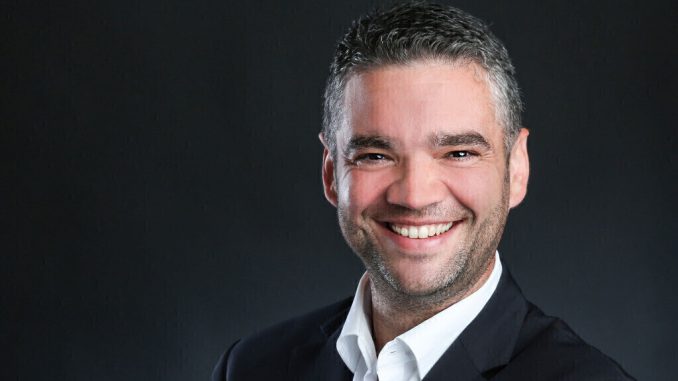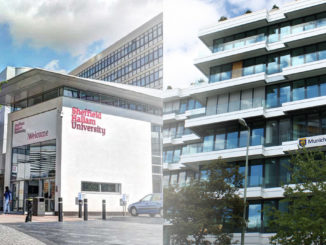
2014 was the year in which Munich Business School– in cooperation with its partner institution, Sheffield Hallam University (SHU) – offered the DBA program for the first time. Part of the first cohort of the program was Christopher Chamberlain, who started his doctorate studies alongside being a part-time lecturer at MBS, and running his own consultancy business. Now, Christopher is the first DBA graduate of Munich Business School, having achieved this feat within the minimum time to study.
We talked to Christopher about the program, his experiences as a DBA student, and his feelings now that he has successfully completed the program.
First of all, congratulations on your achievement, Christopher. Now that you have done it, could you please summarize your feelings?
Let me put it like this: deciding to do a DBA is similar to deciding to have children. You hesitate in the beginning, but when you eventually have them, you are happy, and you know you made the right decision.
You did your thesis in the HR field, dealing with the topic of whether we can disband HR to force HRM integration. How did you get to this topic?
Having held various HR management positions, I consider myself a professional in the HR field. Hence, I thought it was a great fit to choose an HR topic for my research. Talking about the topic in particular, I once had a conversation with a former boss of mine when he said, “You must be aware that HR is unnecessary, if everyone does their job properly”.
I then built on this statement, read around the topic and turned it into a research question.
Looking back on the starting period of your DBA studies, what elements of the program were particularly important to get everything going?
The first module, which was on “Philosophy of Research in Business and Management”, was the most important. The lecturers discussed with us various paradigms of research and elaborated how the different positions underpin research. The second module, which focused on “Research Design”, was very helpful as well. This module helped the cohort develop our research approach.
While I was baffled from time to time because of all the reading lists, research philosophies, and so on, in the end you know why you did it, and why they want you to learn what you do on this program.
Could you please give as a quick overview of the period during which you worked on your thesis?
It was a rollercoaster ride, with good times and bad times. I wanted to complete the program within the minimum time to study, so I pushed myself permanently. In addition, my supervisor – who himself had managed to do the exact same program within four years –, and my fellow cohort members, whom I was in constant touch with during the whole process, continuously pushed me to keep at it.
The last six months, I worked almost full-time on my thesis, I even had to reduce my efforts to do sports. My wife really had to suffer with me, now she has me back as a full-time husband.
How did you prepare for the final step, the DBA thesis defense, and how did it go?
The examiners were known in advance so I could do some research on the positions they have, and I also read their research work. One week before the defense, I went into a mock exam with my supervisors so I had a good feeling, and felt well-prepared.
The defense itself took about an hour and a half. There was a relaxed atmosphere, which contributed to it going smoothly. I eventually passed “with minor corrections”, meaning I still had to do some fine-tuning, but that is pretty much standard. I am happy how it panned out.
Could you please summarize the findings of your research? Can we disband HR?
My research showed that HR management, in the context of my research case study, needs to be retained. You could possibly work without it, yet HR experience adds value to the organisation. Interesting enough, the HR department was seen as the company glue, being more than simply a department dealing with administration and governance but more importantly, showed signs of being a strategic partner.
What are your biggest learnings from the DBA program? What tips can you provide for future DBA students?
The best tip I can give is that if you decide to go about it, you have to do the work on your own – nobody is going to hold your hand. You just have to stick with what was agreed on in your DB2 (research report), and keep at it. And of course, you have to really like your topic, because you are going to work on it for at least four years.
I am glad that I have done it, especially what I have learned about myself and my profession along the way.
What’s up next in your career now that you have achieved your DBA?
I have just started a new job as Head of HR at SimScale, a service provider offering SaaS applications for engineering simulation purposes. In the long run, I can imagine myself returning to academia. But that is still written in the stars.
Thank you for the interview, Christopher, and all the best for your private and professional future.



